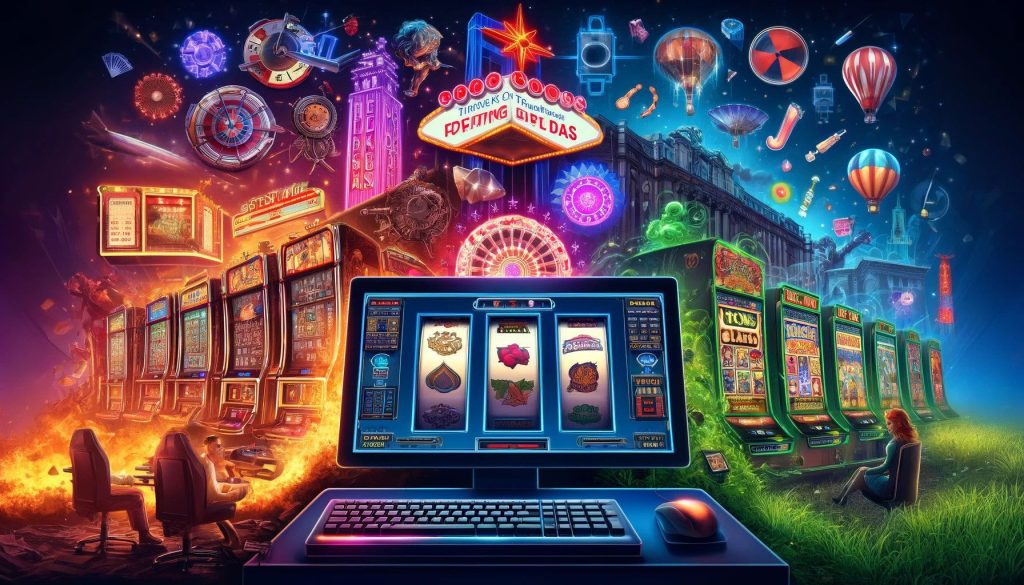The psychology behind online slots is a fascinating area of study, reflecting the interplay between human emotions, behaviors, and the design elements of these digital games. At the core of the appeal of online slots is the concept of intermittent reinforcement, a principle grounded in behavioral psychology. This principle suggests that rewards do not need to be given on a fixed schedule for participants to remain engaged; rather, the unpredictability of rewards can create a powerful urge to keep playing. Online slots employ this mechanism masterfully, as players experience a mix of wins and losses, often leading to a heightened desire to spin the reels one more time. This cycle of hope and excitement taps into the innate human craving for unpredictability and risk, making each spin an emotional rollercoaster. Moreover, the design and aesthetics of online slots play a significant role in their appeal. Many games are adorned with bright colors, engaging sound effects, and captivating themes, which are carefully crafted to evoke positive emotions.
The sensory stimuli not only enhance the gaming experience but also create a sense of immersion that can distract players from the time spent playing and the money invested. The use of visual and auditory cues serves to reinforce the action of spinning, creating a feedback loop where players feel a sense of achievement with each win, no matter how small. These games often feature a variety of themes, from adventure and fantasy to mythology and pop culture, allowing players to find a game that resonates with their personal interests, further enhancing their emotional connection to the experience. Another psychological element at play is the concept of loss aversion, which refers to the tendency for individuals to prefer avoiding losses over acquiring equivalent gains. In the context of online slots, players often continue to play in an attempt to recoup losses, believing that they are due for a win. This behavior can lead to prolonged gaming sessions and increased financial risk, as players chase the elusive big win.
Casinos and game developers are aware of this phenomenon and design their slot gacor to encourage this behavior, often incorporating features such as bonus rounds and free spins that provide players with the illusion of gaining back what they have lost. This not only keeps players engaged but also can lead to a cycle of repeated play, where the anticipation of winning overshadows the reality of losses. Social factors also influence the psychology of online slots. Many platforms incorporate social features, such as leaderboards and the ability to share wins with friends, creating a sense of community and competition. This social aspect can enhance the enjoyment of playing, as players feel a sense of connection with others and are motivated by the desire to achieve higher rankings or share their success. The integration of social media elements taps into the basic human desire for validation and recognition, which can make the gaming experience even more compelling. Additionally, the concept of personalization plays a crucial role in engaging players.
